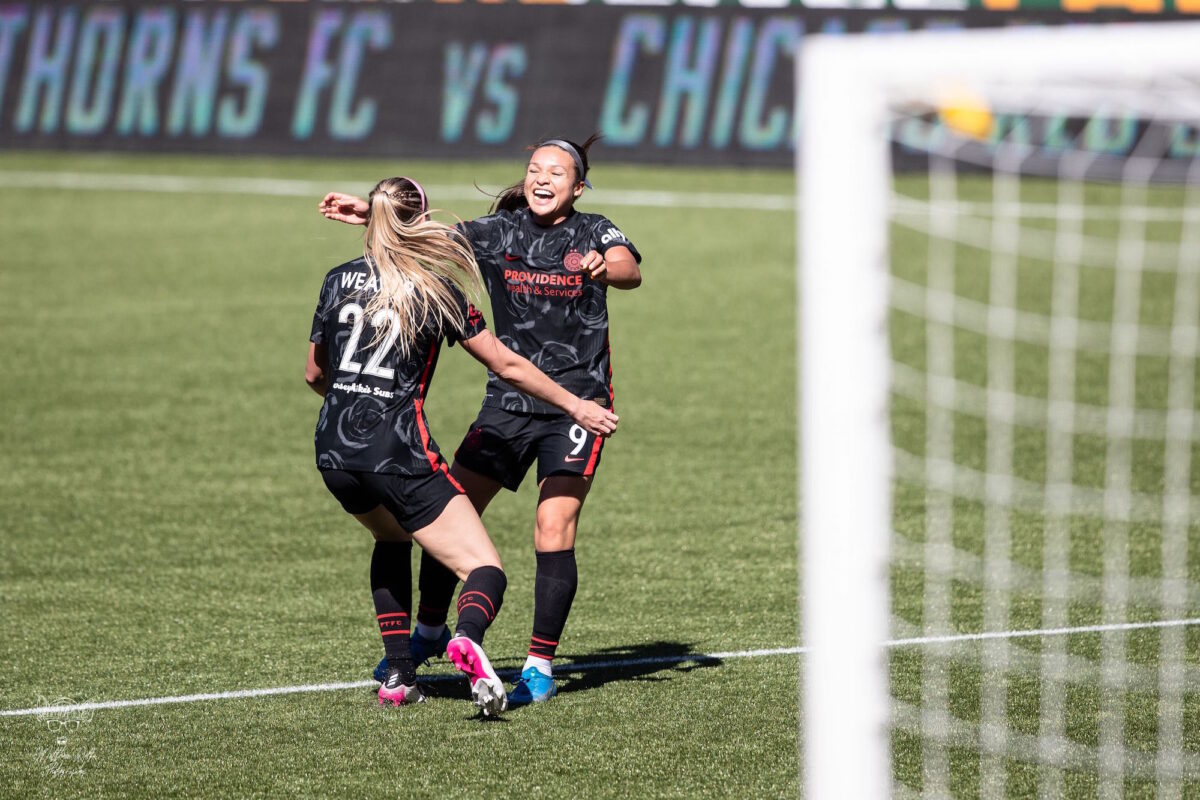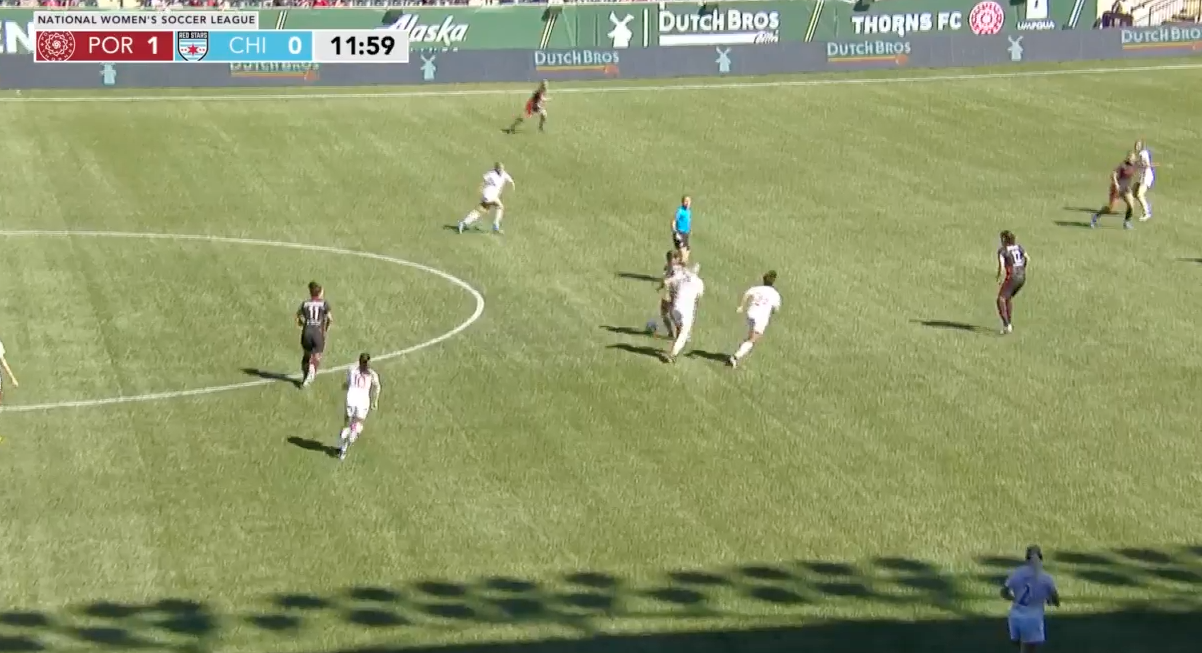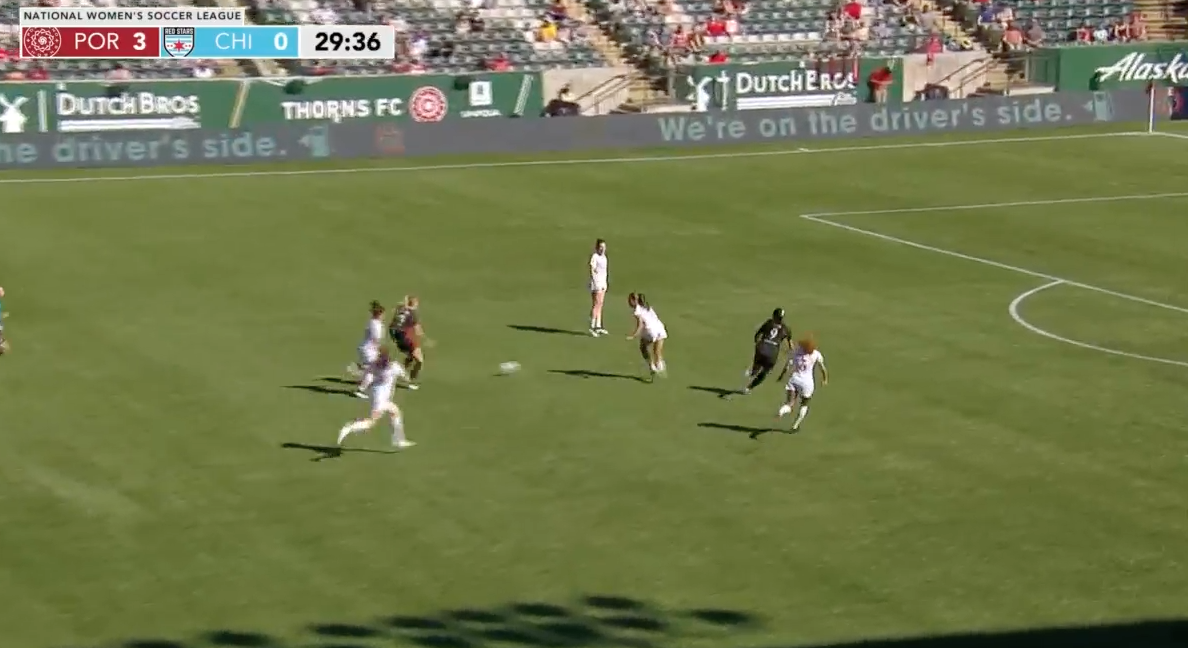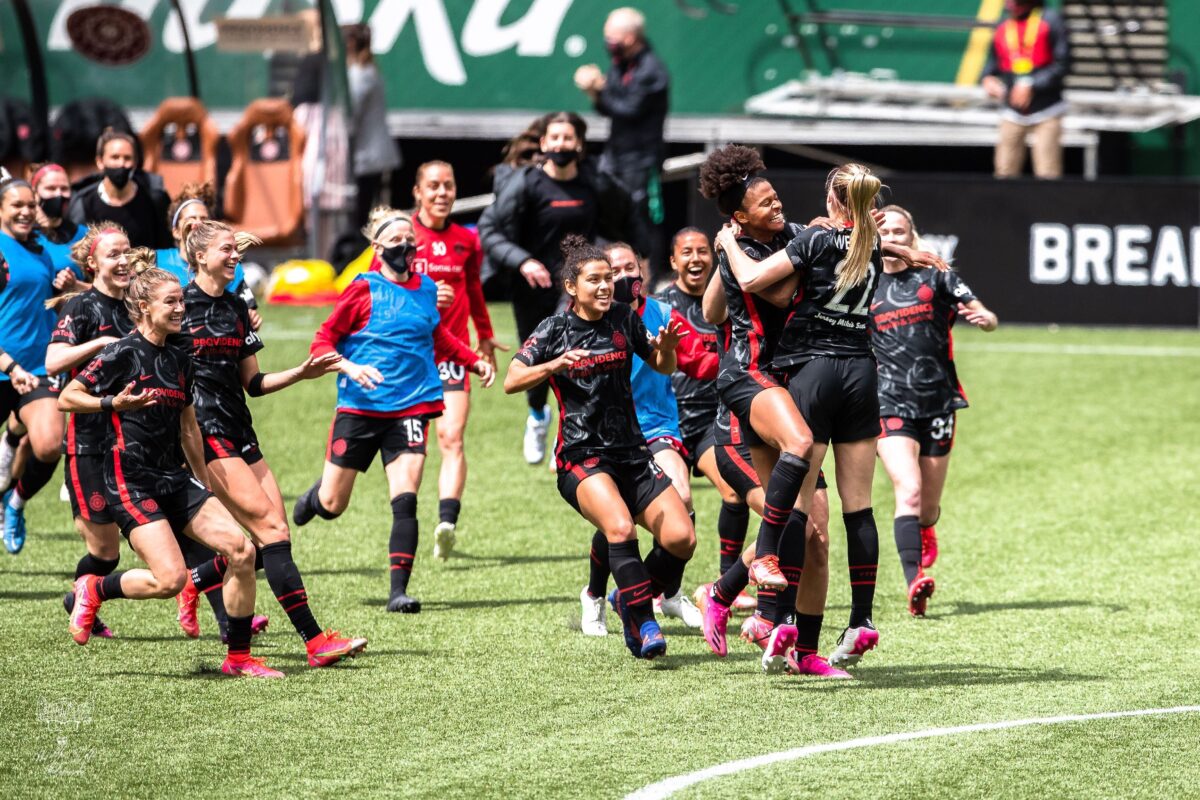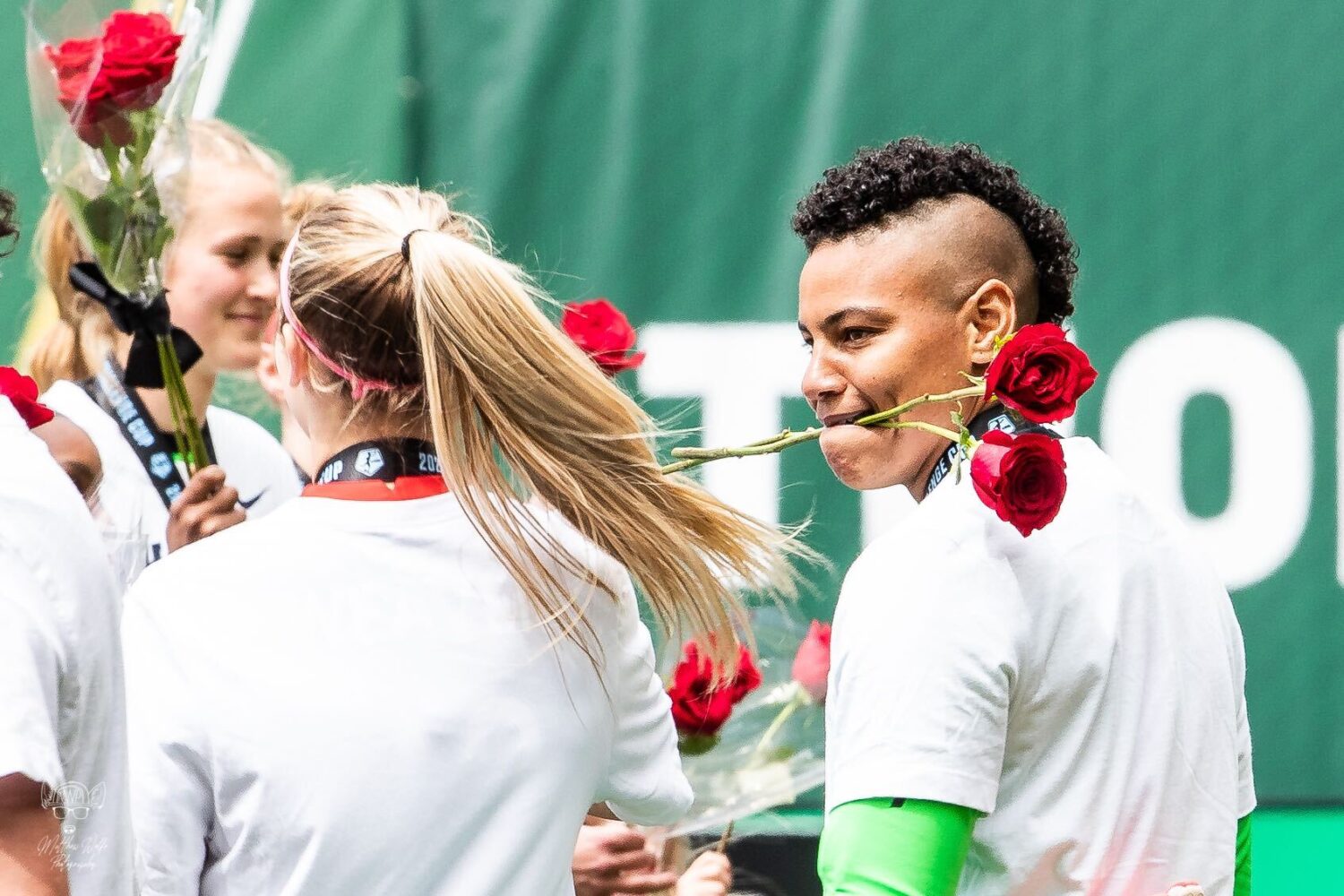The Thorns extended their unbeaten streak with a hard-fought 1–1 tie against the Orlando Pride yesterday evening, thanks to Simone Charley’s fourth headed goal of the season. The Thorns beat the Pride 2–1 just a few weeks ago, but that was before then-coach Marc Skinner abruptly left for Manchester United. The Pride they played tonight, under interim head coach Becky Burleigh, was more physical and harder to break down, but the Thorns were able to dig deep and find a point on the road.
At the outset, the Thorns appeared tight and disjointed. Despite only two changes to the starting eleven from the previous week—with Natalia Kuikka getting the start over Christen Westphal and Marissa Everett stepping in for an injured Celeste Boureille—the team struggled to find a rhythm in the early minutes. That was a departure from previous games, where they’ve started on the front foot: the Thorns have scored 11 times in the first 15 minutes this season, a league record.
Last night was a different story: defensively, the Thorns trailed in the first half, winning 43% of their duels. And it was the Pride who found the back of the net early with a header from Jodie Taylor in the 13th minute. The Pride’s initial run of momentum came off of a 4-v-1 battle against Sophia Smith at the top of the 18, where Smith was offered no support or options to get the momentum on Portland’s side.
After the break, though, the Thorns turned things around. In the postgame presser, Charley and Meghan Klingenberg both framed that change as a shift to “Thorns Soccer,” which refers to the core principles that the team follows. Basically, the players hold each other accountable, focus on process over results, and play the same way regardless of who’s on the field. This consistency allows for them build momentum through a game, to where they can score with ease and class.
And that’s what happened: Charley, who is absolutely on fire, recorded her fifth goal of the season off a free kick by Klingenberg that looked straight off of the training ground. Although the goal didn’t come until the 78 minute, the Thorns had been building for a goal throughout the second half. They recorded three shots on target (up from just one in the first half) and only allowed the Pride four shots total, which is much more typical of the Thorns’ dominant, offense-focused style.
After the game, the players talked about their first-half struggle in finding a rhythm and acting on what the other team was presenting them with. “Somebody is always going to be open, and we need to find that opportunity,” said Kling after the match. She added that once the Thorns are able to find open spaces in game and make adjustments on the fly, they’ll be “scary good.”
Watching that first-to-second-half shift, it’s clear that the Thorns are more than capable of making necessary tactical adjustments and executing plans, and it’s more of a matter of finding the confidence to adjust on the fly, rather than being too shaken to act without having to wait for a break to discuss what to do.
The Thorns Soccer that Charley and Kling discussed in the post-game conference was also present on an individual level. Parsons cited that nine players were out for this match, but that those absences showed the depth of the team culture, as players went a full 90 and didn’t relent.
With Portland’s five international players still out, many players have gotten more minutes than they did in the first half of the season, but the tactics that they employ don’t change. Angela Salem, who got deservedly high praise from Parsons postgame, had the second-most touches (77) and the most chances created (5), as well as boasting a 78% passing accuracy. She’s a pivotal player in the midfield, acting as the glue to help facilitate movement forward and maintain possession. Against Orlando, Salem was one of the most successful in exploiting the space that the Pride left open and has made an exceptionally strong case to keep her starting spot on the team, as her visions and consistency are emblematic of the Thorns culture that the team has been cultivating all season.
Another player it’s impossible not to talk about is Olivia Moultrie, who recorded her second professional start against the Pride and played 82 minutes, nearly double what she played last week. And although she recorded the second fewest touches with 39, her work ethic on the field to recover, pressure, and infiltrate the open space opens up the field for her teammates. Especially in the second half, Moultrie played end to end, making several tackles back in her own 18-yard box, showing that she has the mental fortitude to play with the Thorns.
As the Thorns head into a busy few weeks, with five games in sixteen days thanks to the Women’s International Champions Cup, it’s crucial that they maintain the momentum they have built during the Olympic period. For this team to succeed, every player has to deeply believe in the “Thorns Soccer” culture that allowed them to get back a point on the road against Orlando.

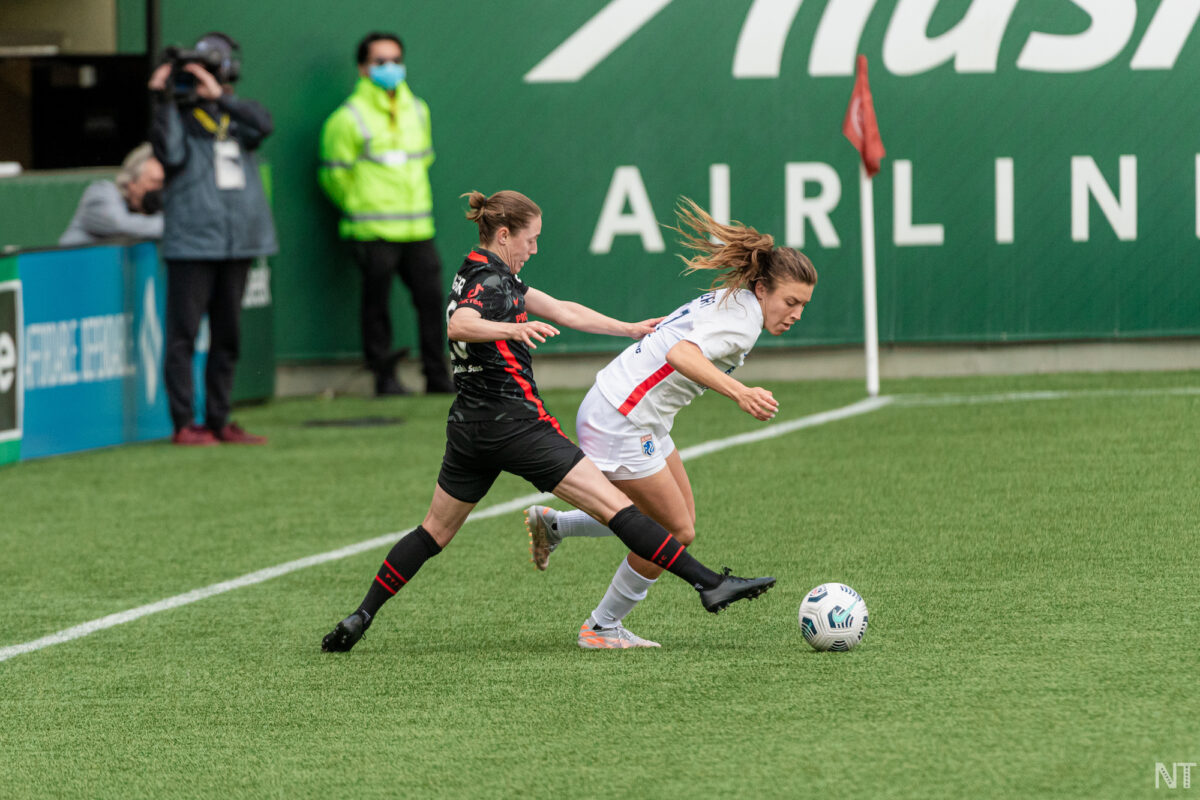
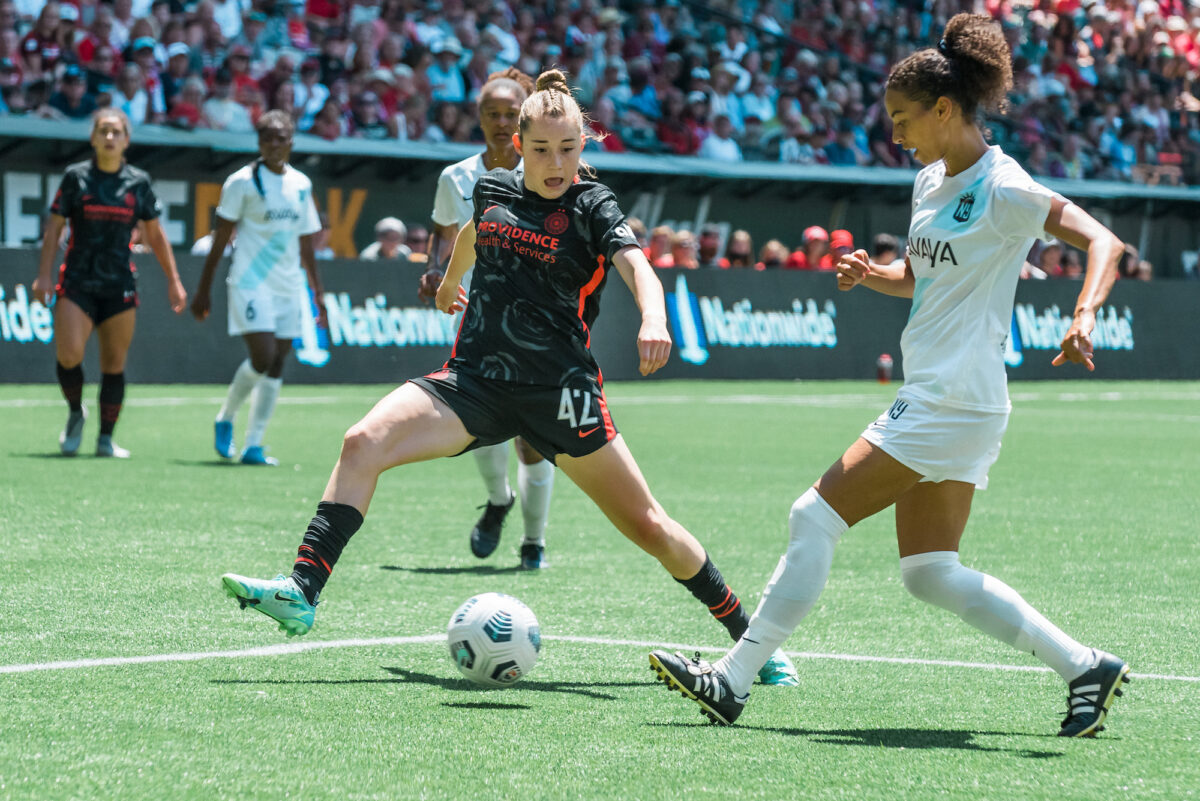
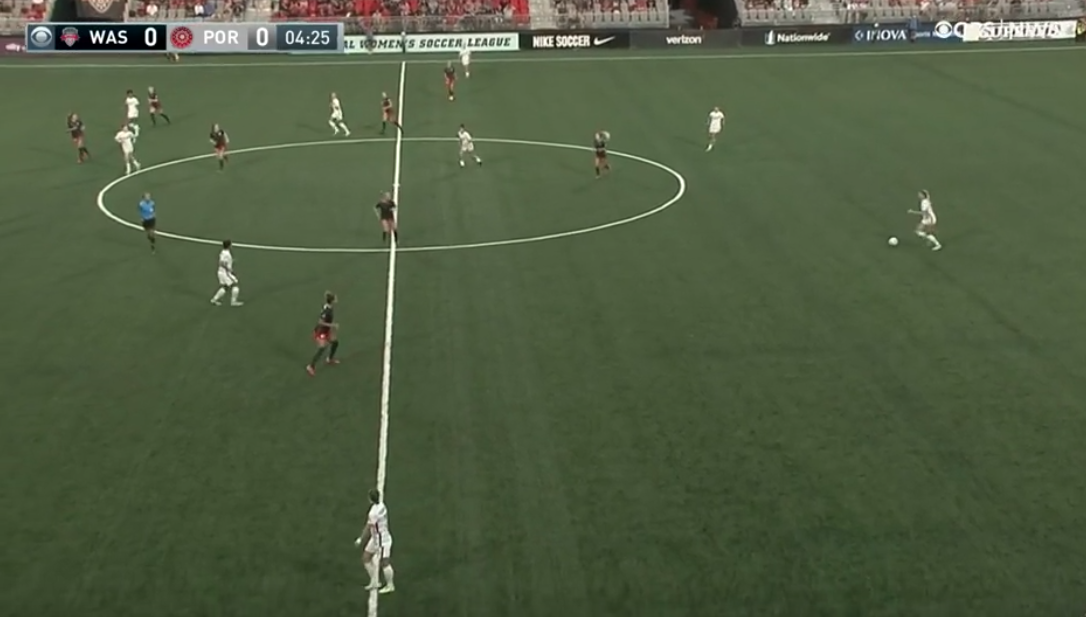
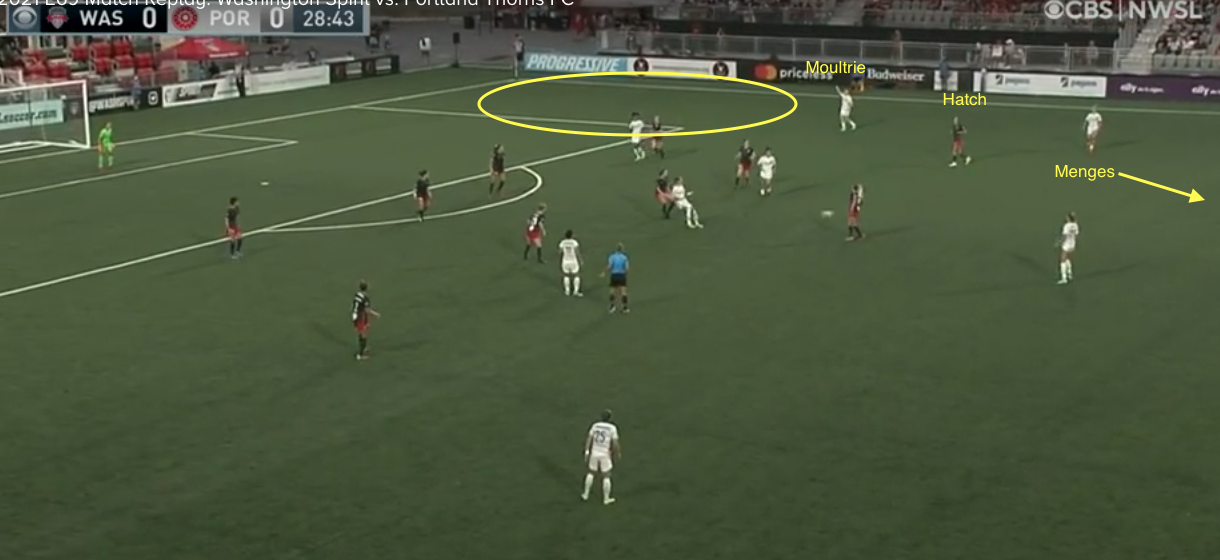
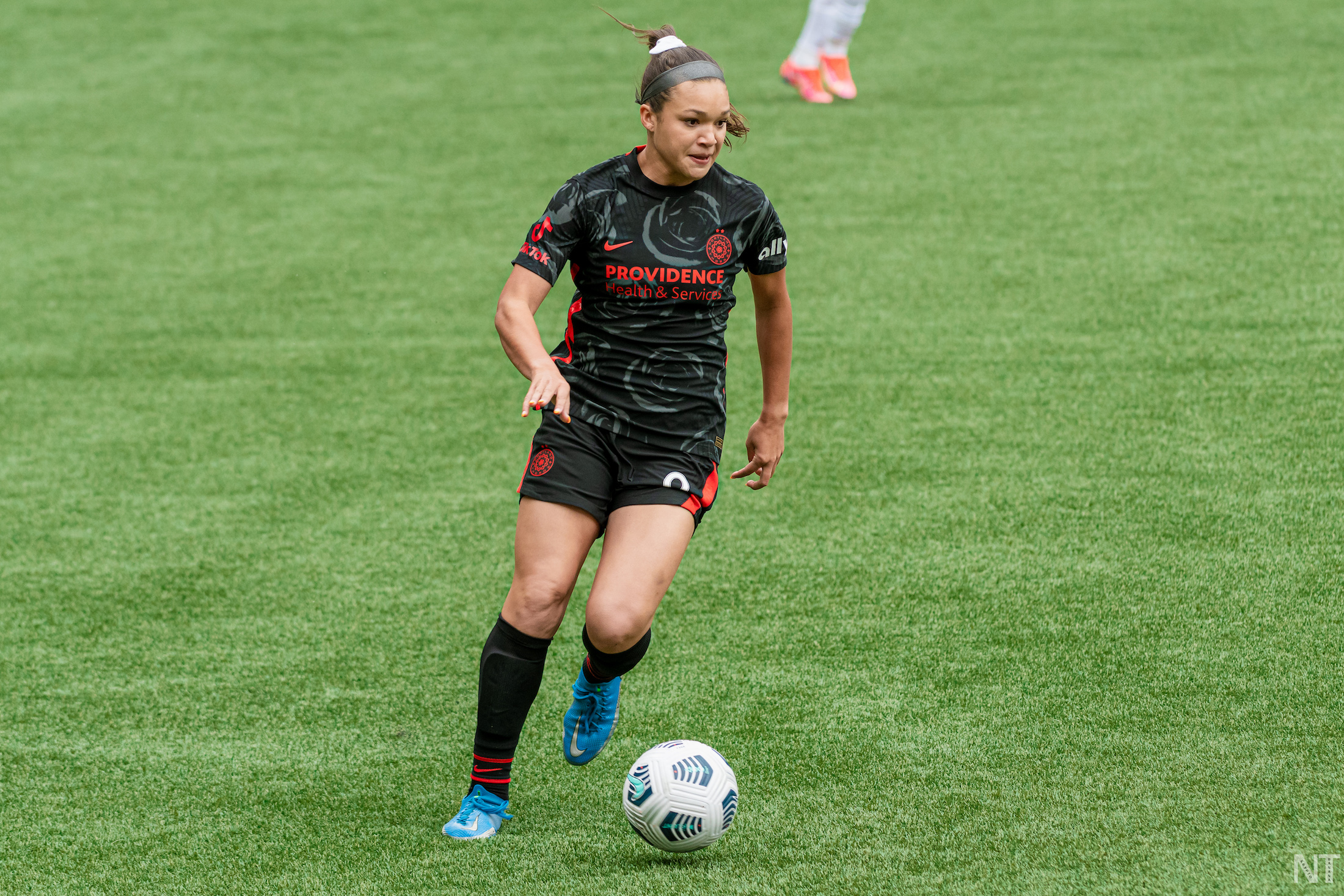
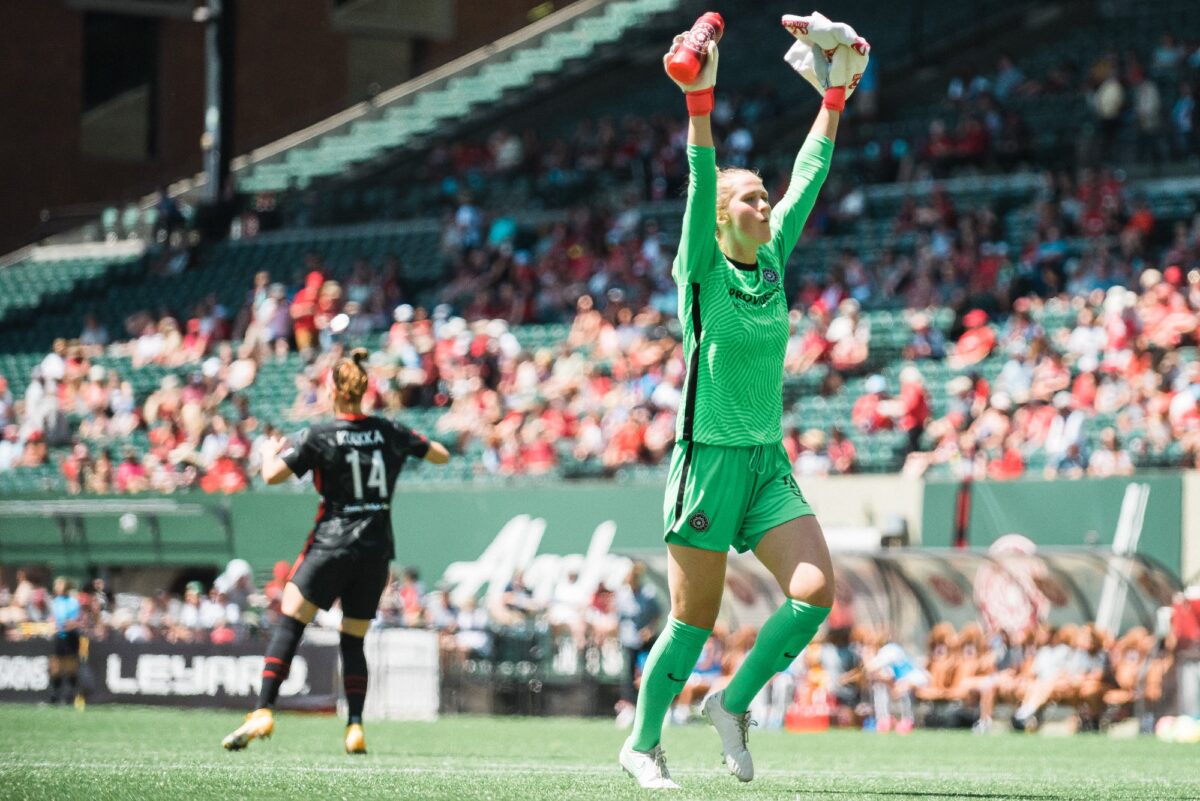



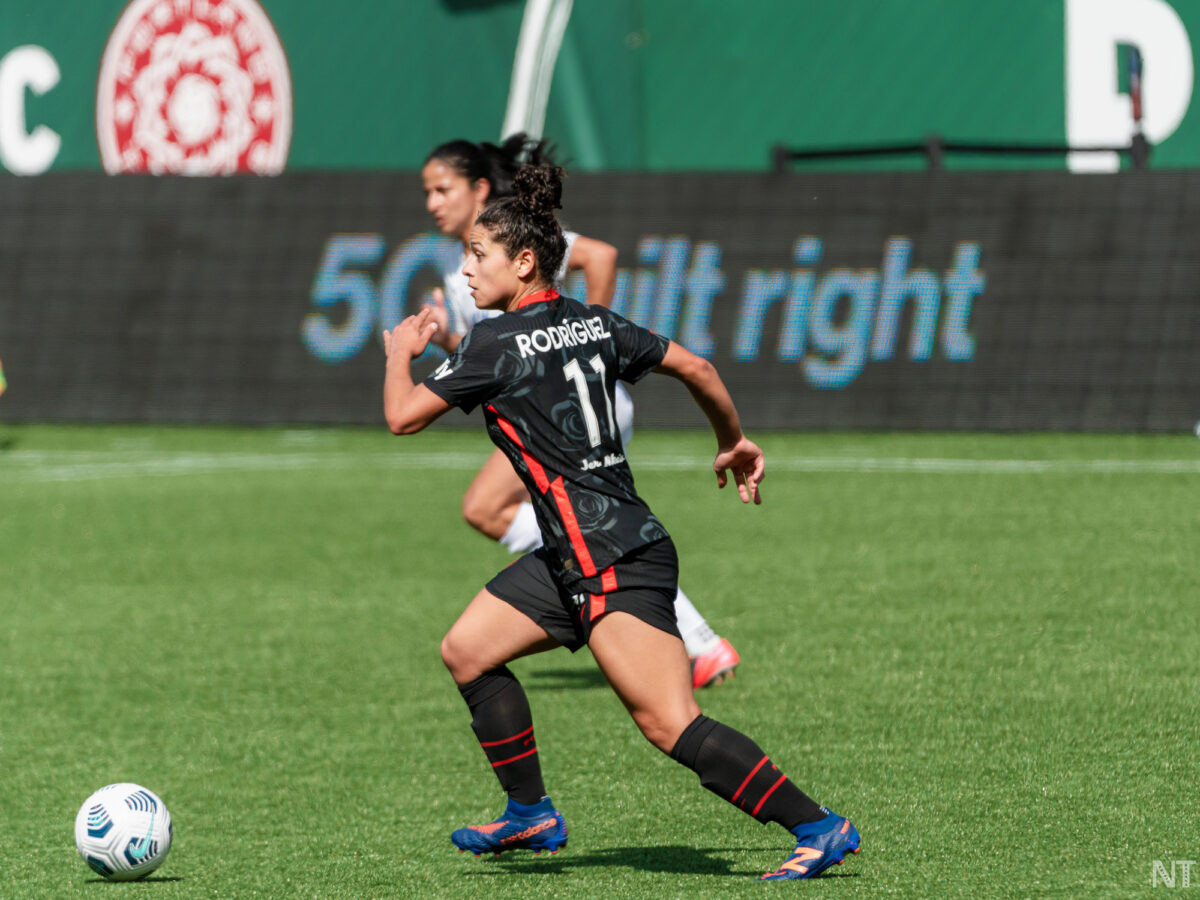
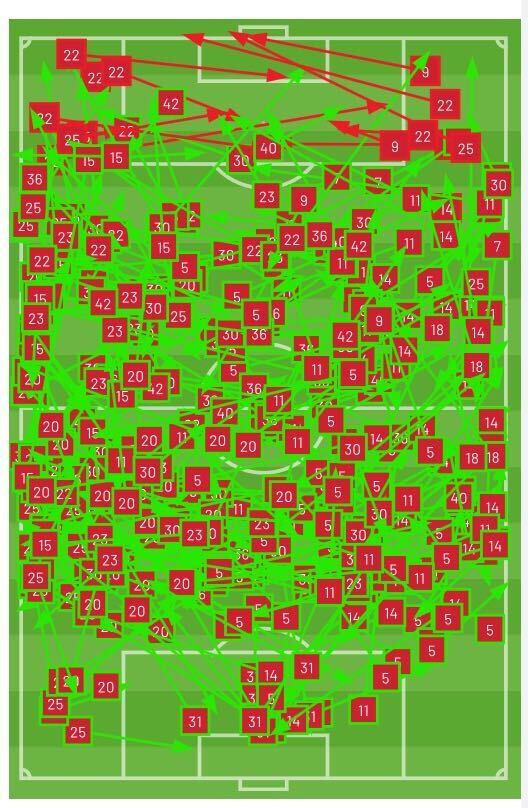
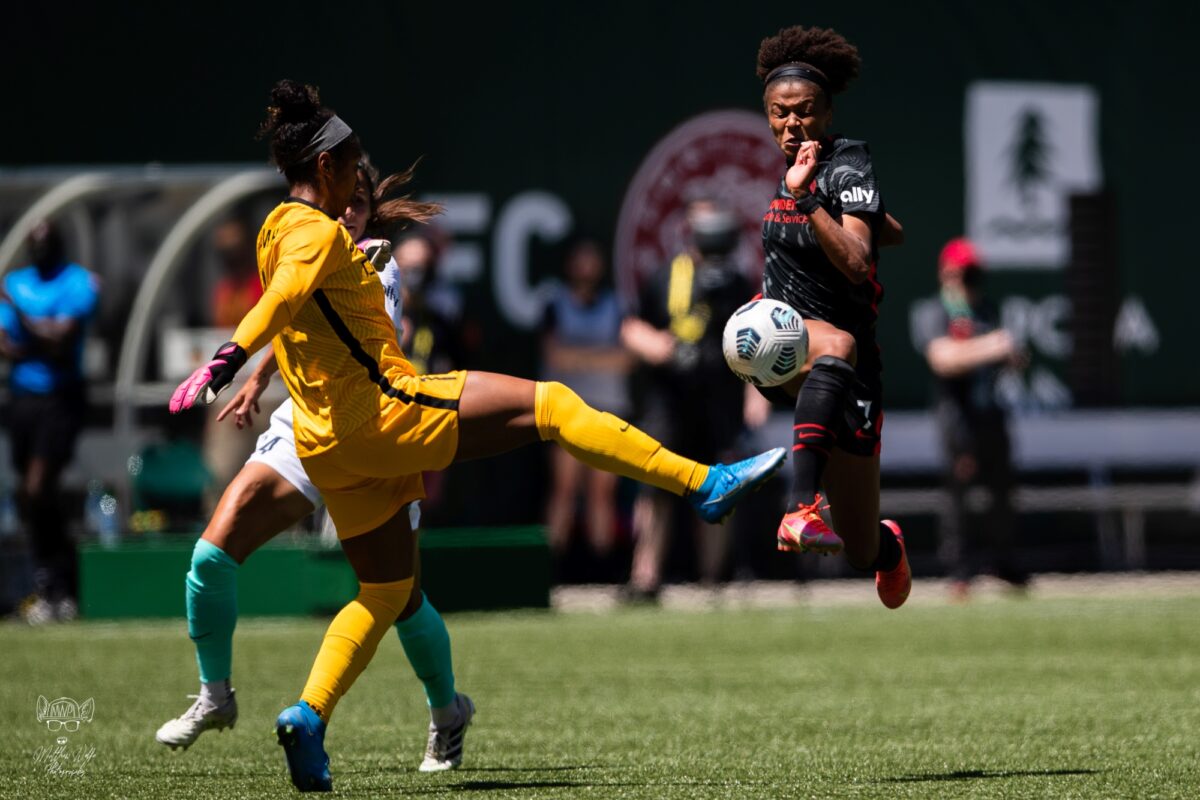
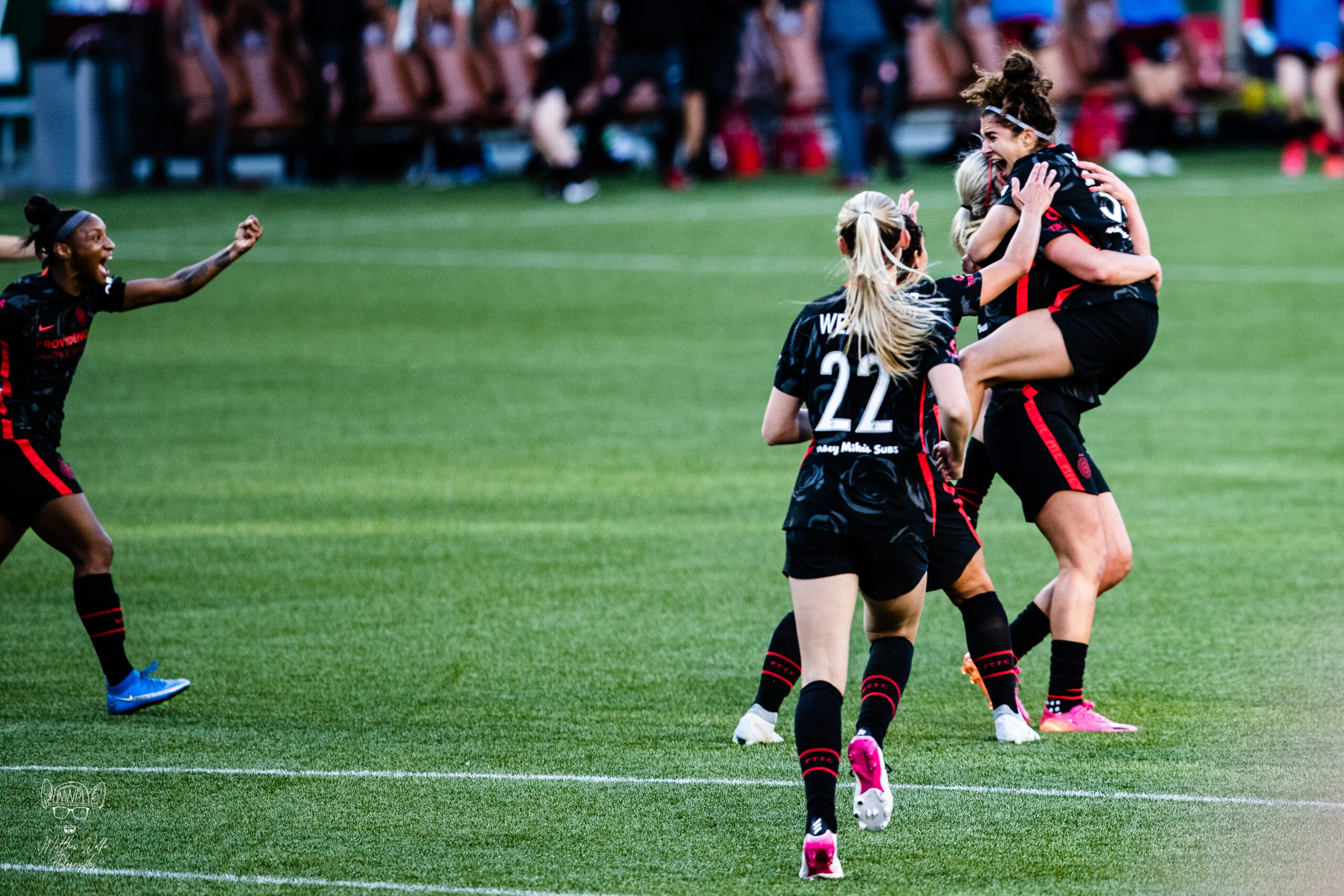
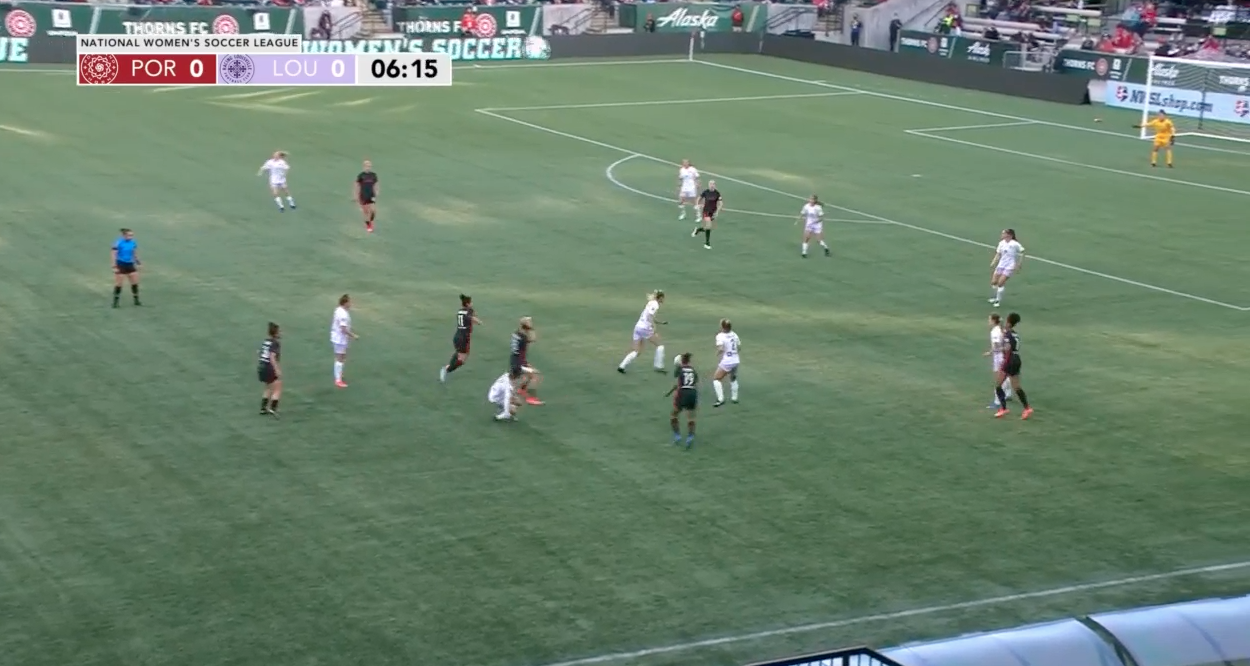
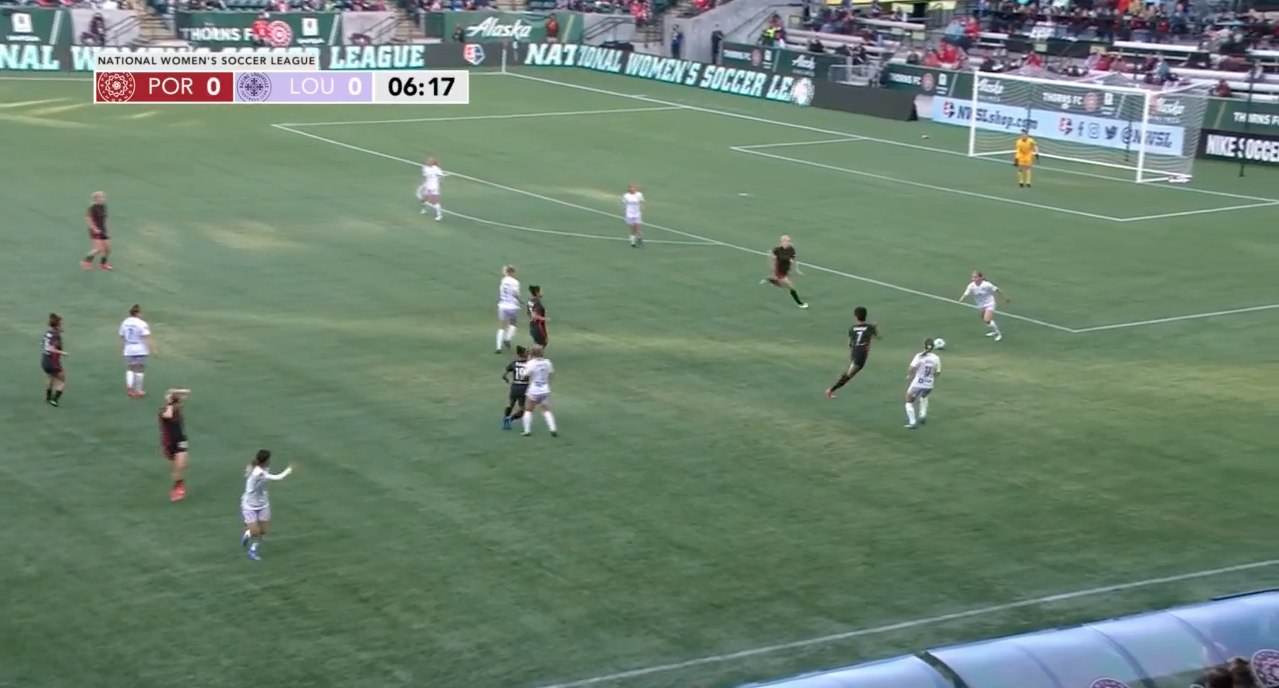
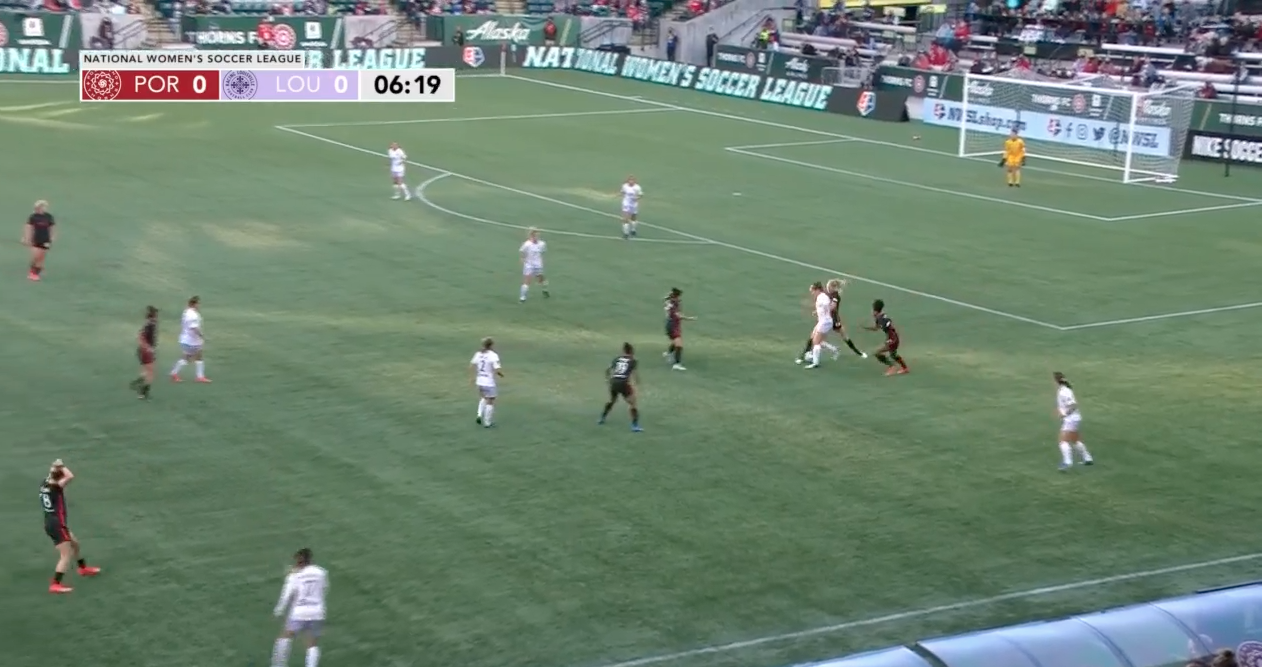


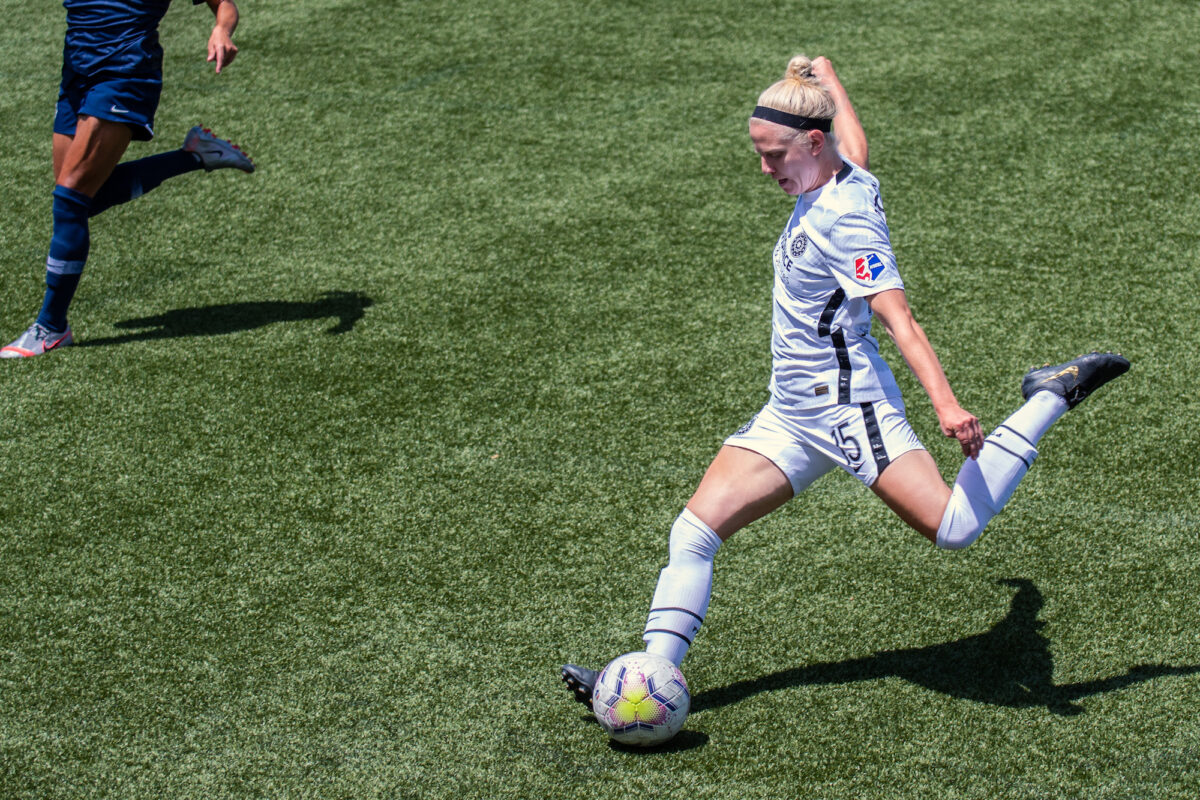
 Unlock with Patreon
Unlock with Patreon